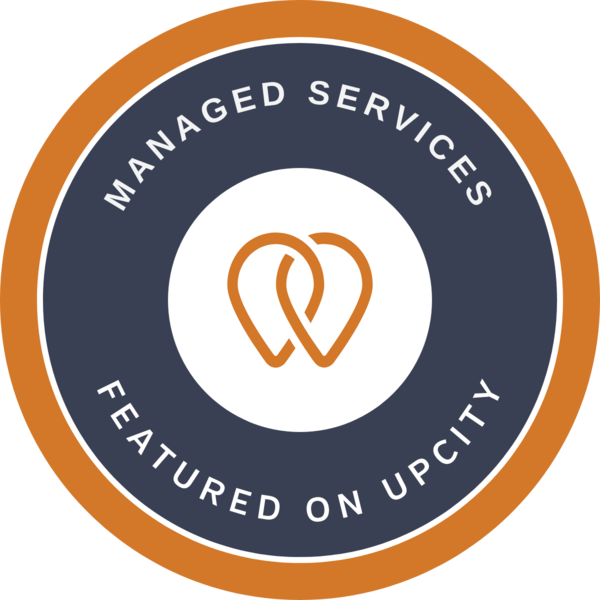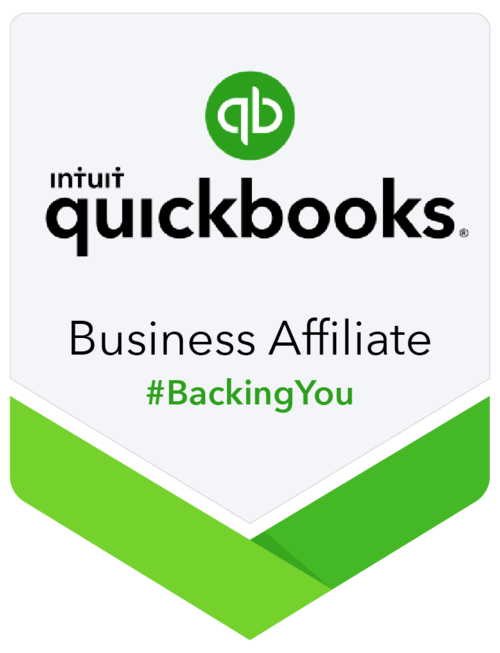Have you ever wondered what is the cloud technology and why it has become such a game-changer in today’s digital landscape? From storing photos on your smartphone to running entire businesses online, cloud computing has revolutionized how we interact with technology. But what exactly is this buzzword? Is it just another server computer, or is there more to cloud technology than meets the eye? In this blog, we’ll break down the advantages for cloud computing, uncovering its purpose, benefits, and real-world applications. Whether you’re curious about what is a cloud software, the mechanics behind cloud as a services, or simply seeking clarity on its advantages, this guide will equip you with all the knowledge you need. So, let’s dive into the world of the cloud and discover why it’s shaping the future of technology!
Section 1: Understanding Cloud Computing
Have you ever paused to consider what is the cloud technology and why it’s such a pivotal part of modern technology? At its core, cloud computing refers to delivering computing services like servers, storage, databases, networking, and software over the internet, often referred to as “the cloud.” Instead of relying on local servers or personal computers, you access data and applications remotely, enabling greater flexibility and efficiency.
Key characteristics of cloud computing include:
- On-Demand Availability: Resources are accessible anytime without requiring human intervention.
- Scalability: Scale resources up or down based on your needs, whether you’re a small business or a large enterprise.
- Cost Efficiency: Pay only for what you use, avoiding heavy upfront investments in infrastructure.
Advantages for Cloud Computing has evolved from being a futuristic concept to a foundational technology driving industries. For US accountants and CPAs, understanding this transformation is essential, as it enables streamlined workflows and better client management.
Section 2: Types of Cloud Computing
Not all clouds are created equal! When discussing what is the cloud technology, it’s important to understand the three primary types of cloud computing and the infra:
- Public Cloud
- Accessible to anyone via the internet.
- Managed by third-party providers like AWS, Microsoft Azure, or Google Cloud.
- Ideal for businesses looking for cost-effective, scalable solutions.
- Private Cloud
- Dedicated infrastructure for a single organization.
- Offers enhanced control, security, and customization.
- Perfect for industries like finance and accounting, where data sensitivity is critical.
- Hybrid Cloud
- Combines the best of both public and private clouds.
- Allows businesses to keep sensitive data private while leveraging the scalability of public cloud services.
By choosing the right type of cloud, accountants and CPAs can ensure they meet their specific needs while maintaining security and efficiency.
Section 3: Core Services of Cloud Computing
When it comes to cloud as a service, the options are as versatile as they are powerful. Let’s break down the three main service models that form the backbone of cloud computing:
- Infrastructure as a Service (IaaS)
- Provides virtualized computing resources like servers and storage.
- Eliminates the need for physical hardware, reducing operational costs.
- Example: Hosting accounting applications on virtual servers for real-time access.
- Platform as a Service (PaaS)
- Offers a platform for developers to build and deploy applications without worrying about the underlying infrastructure.
- Ideal for accountants building custom tools to manage client data.
- Software as a Service (SaaS)
- Delivers software applications over the internet on a subscription basis.
- Example: QuickBooks Online, a favorite among CPAs for its accessibility and ease of use.
These services allow businesses to adopt Advantages for Cloud Computing at their own pace, ensuring a seamless transition from traditional methods.
Section 4: Benefits of Cloud Computing
Why is cloud computing such a hot topic? The advantages for cloud computing are numerous, particularly for accountants and CPAs looking to streamline their operations:
- Cost Efficiency: Say goodbye to hefty hardware expenses. With cloud computing, you only pay for what you use.
- Scalability: Whether you’re expanding your client base or experiencing seasonal demand, the cloud grows with you.
- Enhanced Collaboration: Access files and applications anytime, anywhere, enabling real-time collaboration with your team or clients.
- Disaster Recovery: Data backups and recovery are automated, ensuring business continuity even during unexpected events.
For CPAs, these benefits translate into smoother workflows, reduced costs, and better client satisfaction.
Section 5: Applications of Cloud Computing in Different Industries
Cloud computing is more than just a technological trend—it’s transforming industries worldwide. Here’s how it’s making an impact:
- Healthcare:
- Enables secure patient data storage and sharing.
- Improves collaboration between healthcare providers.
- Education:
- Powers virtual classrooms and learning platforms.
- Makes education accessible to students in remote areas.
- Finance and Accounting:
- Streamlines bookkeeping and tax preparation with tools like QuickBooks and UltraTax CS.
- Ensures secure storage of sensitive financial data.
- Retail:
- Enhances e-commerce platforms with scalable resources.
- Simplifies inventory management and order processing.
For accountants, the finance and accounting sector showcases the most relevant applications, ensuring they stay competitive in a rapidly evolving landscape.
Section 6: Security in Cloud Computing
One of the biggest concerns for accountants and CPAs is security. How safe is your data in the cloud? Cloud computing providers like OneUp Networks address this with robust security measures:
- Data Encryption: Protects sensitive information during transit and storage.
- Identity and Access Management (IAM): Ensures only authorized personnel can access specific data.
- Compliance Standards: Meets global regulations like GDPR and SOC 2 to protect user data.
While the cloud is inherently secure, accountants must also adopt best practices, such as using strong passwords and enabling multi-factor authentication, to enhance their protection.
Section 7: Challenges and Limitations of Cloud Computing
Despite its many benefits, advantages for Cloud Computing isn’t without its challenges:
- Downtime: Dependence on internet connectivity means outages can disrupt workflows.
- Data Privacy: Hosting sensitive financial data on external servers can raise concerns.
- Vendor Lock-In: Switching providers can be difficult once you’ve committed to a specific cloud service.
For accountants and CPAs, understanding these limitations helps in making informed decisions and mitigating risks effectively.
Section 8: The Future of Cloud Computing
The future of cloud computing is bright and full of possibilities. Emerging trends include:
- Edge Computing: Reducing latency by processing data closer to its source.
- Serverless Architecture: Simplifying application deployment without managing servers.
- AI Integration: Leveraging artificial intelligence to automate workflows and improve decision-making.
As advantages for Cloud Computing continues to evolve, accountants and CPAs will find even more opportunities to enhance their efficiency and provide better services to clients.
The Rising Shift to Cloud Computing: Trends and Statistics

Source: G2
The adoption of cloud computing has seen a significant upward trend in recent years. According to Statista, the global public cloud computing market generated a revenue of 292 billion U.S. dollars and is forecast to reach 476 billion U.S. dollars by 2028.
In terms of service providers, a 2024 survey revealed that 49 percent of respondents are already running significant workloads on Amazon Web Services (AWS).
These statistics highlight the growing reliance on cloud services, underscoring the importance for businesses to consider integrating cloud computing into their operations to stay competitive and efficient.
Empower Your Accounting with OneUp Networks
As an accountant or CPA, you know that staying ahead in today’s fast-paced world means embracing technology that simplifies your work and amplifies your efficiency. That’s where OneUp Networks steps in. By combining the advantages for Cloud Computing with our expertise in accounting and tax application hosting, we offer solutions tailored to your needs.
Imagine having your critical tools like QuickBooks, UltraTax CS, or Fishbowl Inventory hosted on a secure, scalable, and high-performance cloud platform. With OneUp Networks, you’re not just getting a hosting service—you’re gaining a partner who understands the unique challenges of your industry.
Here’s how we make a difference:
- Enhanced Accessibility: Work anytime, anywhere, with seamless access to your applications and data.
- Top-Notch Security: Your sensitive financial data is protected with advanced encryption, multi-factor authentication, and compliance with global standards.
- Scalability at Its Best: Whether you’re managing seasonal tax deadlines or expanding your client base, our cloud hosting grows with you.
- Unmatched Support: Our team of cloud experts is available 24/7 to ensure your operations run smoothly, so you can focus on what you do best.
Practical Examples of Cloud Computing for Business:
To better understand how cloud computing works for businesses, let’s look at some real-world examples that illustrate its capabilities and benefits:
1. Netflix: Scalability in Action
Netflix uses cloud computing to deliver its massive library of movies and TV shows to millions of users worldwide. The platform dynamically scales its resources to handle spikes in demand, such as during the release of a popular series. This scalability ensures uninterrupted streaming for users while minimizing costs for Netflix. Similarly, businesses can use cloud computing to scale their operations based on demand, whether it’s during a busy tax season or a product launch.
2. Dropbox: Seamless Data Access
Dropbox revolutionized the way individuals and businesses store and access files. With data stored securely in the cloud, users can retrieve and share files from any device, anywhere in the world. For businesses, this means improved collaboration and reduced reliance on physical storage, making workflows more efficient and accessible.
3. Spotify: Personalization and Real-Time Data
Spotify uses cloud computing to manage its vast music library and deliver personalized playlists to users in real time. By analyzing user preferences and streaming habits, Spotify ensures a tailored experience for each individual. For businesses, cloud computing enables real-time data processing and analytics, helping them make informed decisions and improve customer experiences.
4. Slack: Team Collaboration Simplified
Slack, a cloud-based communication tool, has become indispensable for team collaboration. It allows employees to exchange messages, share files, and integrate other apps in one central location, fostering productivity and teamwork. Cloud computing makes this possible by providing a reliable, always-available infrastructure.
5. Amazon Web Services (AWS): Cloud Infrastructure for Businesses
AWS provides a broad range of cloud computing services, from storage to machine learning. Startups and enterprises alike use AWS to host applications, store data, and run complex computations without investing in costly physical servers. This pay-as-you-go model offers flexibility and cost savings for businesses of all sizes.
These examples show how cloud computing empowers businesses to operate more efficiently, scale effortlessly, and deliver better experiences to their clients. Whether it’s streaming entertainment, storing files, or collaborating in real-time, the cloud is transforming the way businesses function.
Conclusion
Are you ready to take your accounting practice to the next level? With OneUp Networks, you’ll experience the perfect blend of technology and personalized service. Let us handle the technical complexities while you enjoy the benefits of increased efficiency, reduced costs, and happier clients.
The future of accounting is in the cloud—why not make the leap with a trusted partner? Contact OneUp Networks today and see how we can transform the way you work.




































